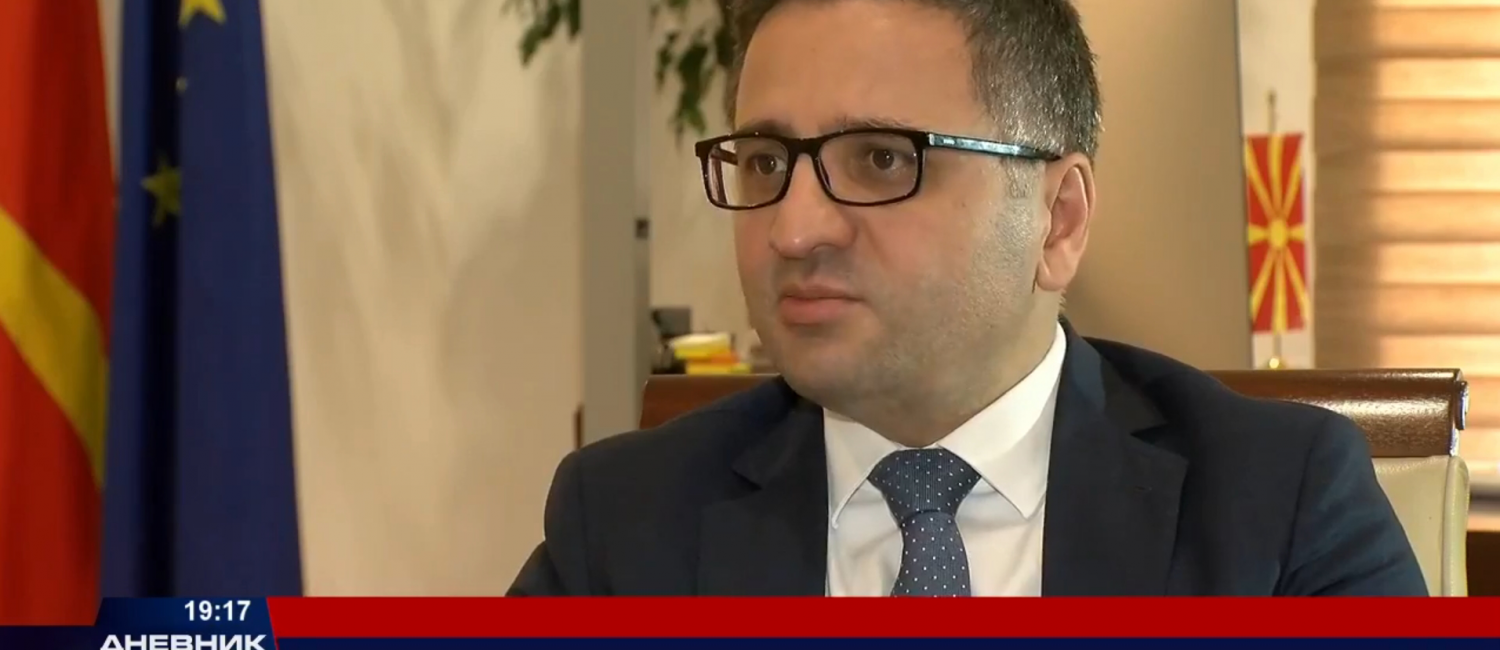15th June 2022, Skopje – Support to citizens and companies under Supplementary Budget does not consist of EUR 76 million alone, as envisaged under a special anti-crisis measures program. Supplementary Budget rather allocates more funds for support distributed in several positions and programs,

Minister of Finance, Fatmir Besimi, pointed out in his guest appearance in „Tema na denot“ (Theme of the Day) Show on Sitel TV News.
“Back in March already, we adopted a set of measures, one of the most substantial as share of GDP in the region, as a response to the crisis. Supplementary Budget is designed as a response to part of these measures, since, although EUR 50 million was projected in the Budget as a buffer, we have allocated much more funds for the respective measures. Thus, under the Supplementary Budget, adjustments are being made and funds are being allocated again to maintaining the growth and the support”, Minister Besimi said.
As he stated, around EUR 11 million, an amount being reallocated (cut) from the Program for Financial Support of Investment, is now allocated again in a higher amount than the initial one. Additional Denar 2.4 billion is allocated for both guaranteed minimum income, improving the well-being of those affected the most, as well as temporary measures to be incorporated in the system, with Denar 3.2 billion also being allocated for agriculture support.
The Minister underlined that the new measures will be defined following the adoption of the Supplementary Budget.
“Government team and representatives of the Chambers of Commerce will discuss the support to the business sector and the economic and social dialogue for the vulnerable categories which need such support the most”, the Minister explained, adding that households falling within the category which cannot provide for the essential expenses will be defined and supported. At the same time, measures will be designed regarding the use of the funds awarded for electricity and food costs, as allowance for increased food and energy costs. With respect to the support to the economy, he pointed out that the effect from the existing measures implemented via the Development Bank is to be estimated.
As the Minister underlined, the measures provide for furthering the support to all citizens, by continuing the application of the reduced VAT rate on electricity from 18% to 5% by the end of this year. New electricity tariff system will be introduced as well, and the electricity price on the regulated market in the country is below the market price.
During the interview, the Minister pointed out the international institutions’ estimates are that the crisis will protract, therefore it is necessary for the Budget to be in good condition so as to endure it, with the crisis effect being distributed more equally to all stakeholders. In particular, as he mentioned, in order for the Budget to sustain the measures they have to be more targeted and more efficient, because after all it is the citizens’ money, collected through taxes, and they are not to be spent on measures yielding lesser effect, as well as for categories requiring no budget support, amid borrowing on the financial markets at high prices.
Under the Budget, more funds are projected for financing, to the end of leaving room for borrowing under more favourable terms and conditions on the international markets and transferring funds as deposits for the next year.
Part of the needs will be financed via borrowing on the domestic market, while most of them will be financed by borrowing on the international market, including the loan agreements. For instance, EUR 100 million EBRD loan for ESM, other World Bank loans, IPA grant funds, funds from IMF programs, etc.
















